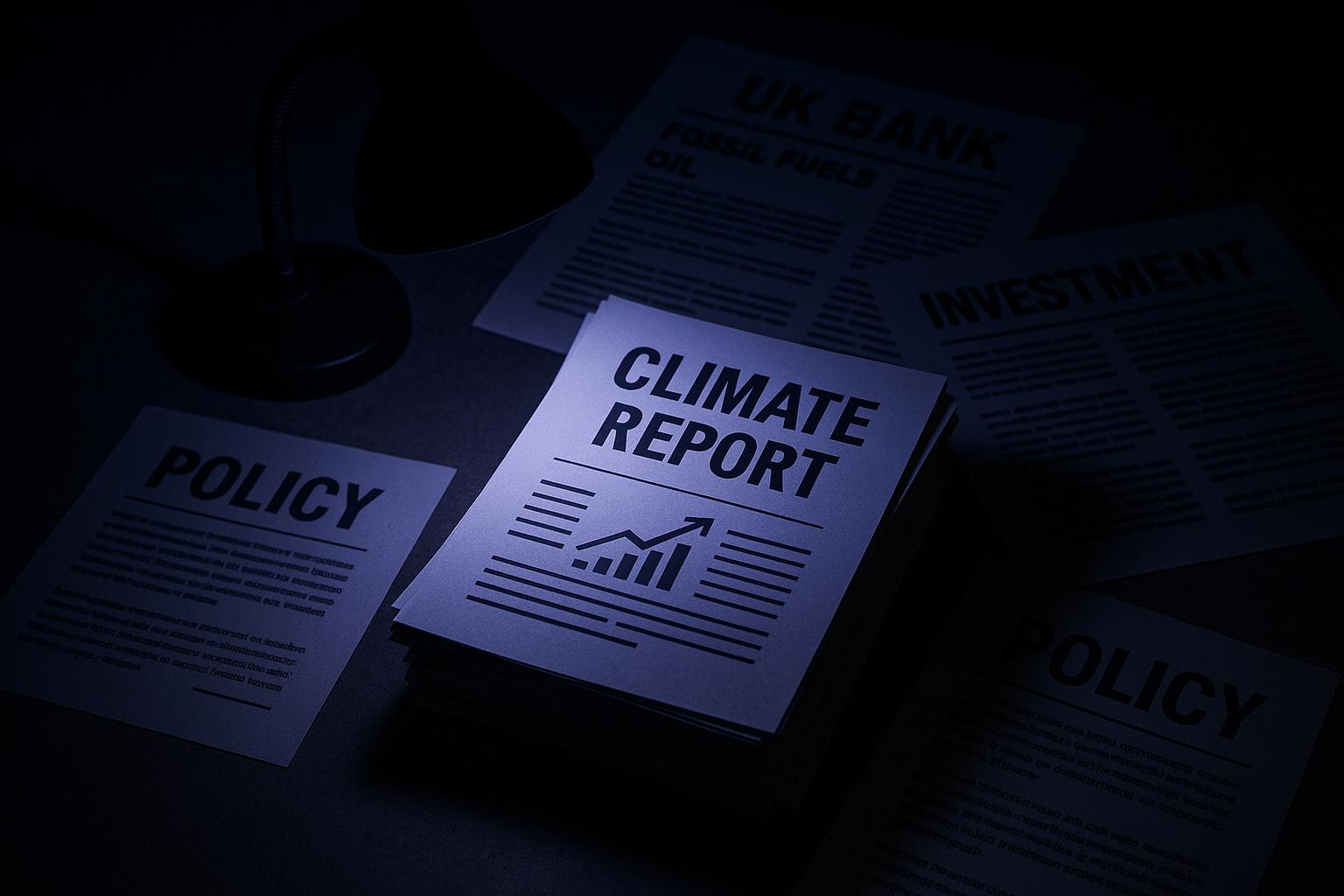Some of the United Kingdom’s largest banks have dramatically increased their financing of fossil fuel projects in 2024, contributing billions of pounds to oil and gas industries despite growing global climate concerns. An analysis by consumer group Which? reveals that while most UK high street banks continue to back environmentally damaging sectors, only two—Co-operative Bank and Triodos Bank—were found to meet high ethical standards and have zero exposure to fossil fuels in their banking activities.
Which?’s research, carried out alongside environmental groups Reclaim Finance and Global Canopy, highlights that major banks such as Barclays, HSBC, NatWest, Lloyds, Santander, Danske Bank, and JP Morgan Chase are among the institutions financing fossil fuel expansion. JP Morgan Chase, the world’s largest fossil fuel financier, committed around £40 billion ($53.5 billion) to these industries alone in 2024. This was part of a broader trend identified by the “Banking on Climate Chaos” report issued in June, which showed that the top 65 global banks designated $869 billion (£648 billion) to fossil fuel companies—a $162.5 billion increase compared to 2023. This marks a marked reversal from a declining financing trend seen since 2021.
Barclays stood out as Europe’s largest fossil fuel financier in 2024, with investments amounting to $35.4 billion (£27 billion), followed by Santander, BNP Paribas, Deutsche Bank, and HSBC, which each contributed between $14 billion and $17.3 billion (£10.7 billion to £13.2 billion). Despite these figures, spokespeople from several banks emphasised their ongoing commitments to green energy transitions. For instance, Barclays stated that many economies still depend on conventional energy during their renewable transitions, reiterating their goal to be net zero by 2050. Santander pointed to long-term financing of renewable energy projects and support for companies transitioning to a low-carbon economy, while JP Morgan Chase described itself as a leading financier of diversified energy sources and outlined an ambitious climate investment target of $1 trillion (£750 billion) by 2030.
Which? singled out Triodos Bank for uniquely publishing its entire loan portfolio, allowing customers insight into where their money is directed. The Co-operative Bank and Triodos both received Which?’s “Eco Provider” endorsement for their transparency and ethical policies. Meanwhile, several banks were criticised for policies that permit continued fossil fuel expansion or relaxation of environmental protections. For example, JP Morgan Chase has been noted for enabling fossil fuel companies to grow their operations and weakening deforestation safeguards, while Santander lacks key environmental protections on products like palm oil and beef.
The findings raise concerns about the accountability and transparency of banks regarding sustainable investment. Sam Richardson, deputy editor of Which? Money, noted that while many consumers seek to make sustainable financial choices, the sector’s opacity makes it difficult to track how their money is used. “Worryingly, our latest research has shown that far from making progress in this area, many major banks are instead choosing to invest ever larger sums into environmentally damaging industries,” he said.
This resurgence in fossil fuel financing comes amid intensified global climate challenges, including record-breaking temperatures and urgent calls for accelerated action on climate change. Environmental groups and reports agree that the increased investment marks a retreat from the climate commitments many banks publicly espouse.
In summary, the banking sector’s growing fossil fuel financing poses a stark contradiction to their public pledges on clean energy and net zero goals. While two UK banks set a positive example, the trend among the majority suggests a continued reliance on and support for carbon-intensive industries, making the shift to a sustainable financial future far from assured.
📌 Reference Map:
- Paragraph 1 – [1], [4]
- Paragraph 2 – [1], [2], [6]
- Paragraph 3 – [1], [3], [7]
- Paragraph 4 – [1], [5]
- Paragraph 5 – [1]
- Paragraph 6 – [1]
- Paragraph 7 – [2], [4], [6]
Source: Noah Wire Services
